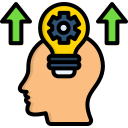
Skill Development Through Open Source Participation
Open source participation has emerged as one of the most effective ways to build critical skills in the ever-evolving digital world. By engaging in open source projects, individuals gain access to real-world challenges and collaborative ecosystems that accelerate learning beyond traditional educational settings. Whether you are an aspiring developer, designer, documenter, or project manager, open source offers countless opportunities for both personal and professional growth. The following sections explore how open source participation serves as a robust platform for developing a wide array of important skills.
Gaining Hands-On Technical Experience
Contributing to open source allows individuals to deepen their expertise in popular programming languages such as Python, JavaScript, or Rust, as well as frameworks like React or Django. By working within an existing codebase, you encounter how these technologies are applied to solve real-world problems and can observe different coding styles and patterns. This exposure facilitates a deeper understanding of syntax, architecture, and best practices. Furthermore, open source communities often provide extensive documentation and mentorship, enabling newcomers to accelerate their learning and develop confidence in writing reliable, maintainable code. Over time, this hands-on experience transforms academic knowledge into tangible skills.

Building Communication and Teamwork Skills
Since most open source collaboration occurs online, clear and effective written communication is vital. Contributors must articulate their ideas, questions, and feedback through issues, pull request descriptions, and online forums. This environment encourages participants to develop clarity and professionalism in their writing while also being considerate of varying language proficiencies and cultural backgrounds. Over time, contributors learn to frame their messages with empathy, detail, and precision, minimizing misunderstandings and enabling productive collaboration. These refined communication skills translate directly to professional email correspondence, documentation, and client interactions in any field.
Open source projects often attract contributors from every corner of the globe, bringing together a variety of cultures, perspectives, and work rhythms. Working in such environments teaches patience, adaptability, and respect for different viewpoints. Contributors quickly learn to navigate time zone differences, varying communication styles, and diverse assumptions about problem-solving. Through repeated interactions, participants become adept at building global relationships and leveraging diversity for creative problem solving. The ability to collaborate effectively across cultures is invaluable in today’s interconnected world, enhancing both personal growth and career prospects.
Open source contribution involves giving and receiving feedback, from code reviews to design discussions. This process is not always straightforward—opinions can clash, and critiques may be misinterpreted. However, the open source environment offers a unique chance to practice delivering feedback that is specific, actionable, and respectful. Contributors also gain experience in gracefully accepting criticism and using it as a learning tool. When conflicts arise, participants are encouraged to find common ground and resolve disagreements professionally. These abilities—offering constructive feedback and handling conflicts—are critical in any team environment, enhancing leadership potential and interpersonal relationships.
Encouraging Continuous Learning and Self-Motivation
By contributing to active open source projects, individuals often find themselves at the frontier of technological innovation. Many projects actively seek to implement the latest libraries, frameworks, and standards, giving contributors early access to emerging tools and practices. This exposure provides a strategic advantage, as participants become familiar with trends before they reach mainstream adoption. The open exchange of ideas and regular updates within project communities further facilitates learning, ensuring contributors are always equipped with the most current knowledge and skills relevant to their fields.

